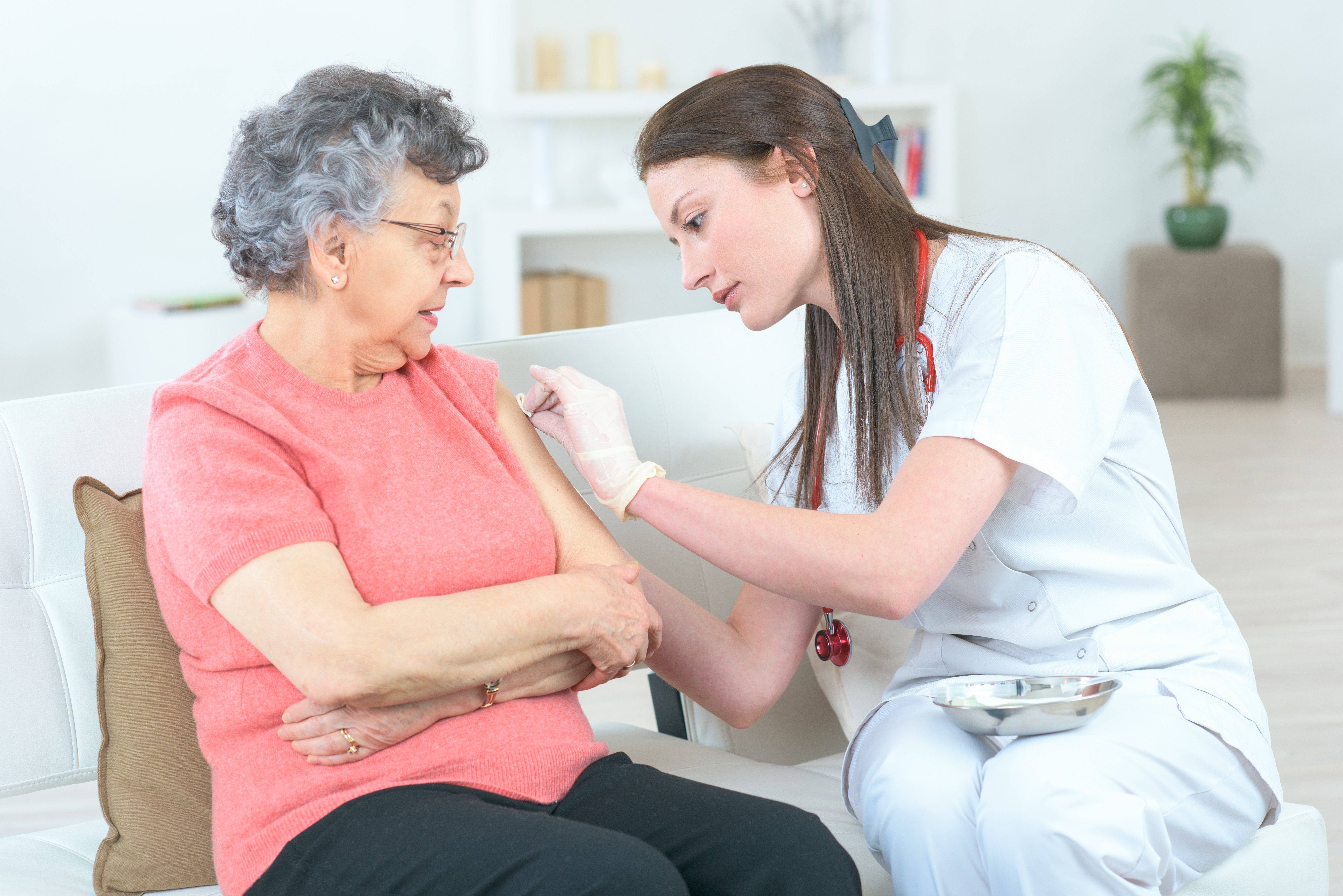
The winter months are fast approaching.The warmth of fires, the smell of delicious dinners, and the time spent with family and friends are all a welcome part of the cooler months.However, the cooler months are also marked by flu season.
Not only will festivities be running rampant but also a myriad of illnesses.According to studies, cooler weather means a natural weakening of the immune system.Combined with an increase in the hardiness of viruses and bacteria, this time of year spells disaster for those who are higher at risk for getting sick like seniors.Seniors inherently have a weakened immune system due to the natural aging process, which can make winters even more dangerous for this age group.
Thankfully, there are vaccines available to help protect your loved ones from contracting illnesses and developing very serious side effects.Here are the 5 most important vaccines for your senior loved one.Flu VaccineThe flu vaccine is the most commonly talked about vaccine during the winter months.
There is often much debate about its importance.For seniors, it is crucial! While anyone can contract the flu throughout the year, the number of cases in the United States increases between October to May.According to the CDC:5070% of seasonal flu hospitalizations occurred in seniors 65 years of age and older7085% of seasonal flu deaths occurred in seniors 65 years of age and olderThe flu vaccine is an annual vaccine that is highly recommended for seniors 65 years and older.Senior loved ones should receive their flu vaccine no later than the end of October because it takes 2 weeks for full immunity to take place.
As such, seniors need ample time for the vaccine to take effect before flu season hitsHowever, keep in mind that it is never too late to reap the benefits of the flu vaccine.If you miss the late October recommendation, don't throw in the towel.You can still get the flu vaccine at any point and receive protective benefits.While some argue that they still get the flu even if they get the vaccine, typically flu symptoms and duration are less severe, reducing the risk of needing hospitalization or developing serious complications.
Pneumococcal VaccineThe pneumococcal vaccine helps prevent pneumococcal disease, which is responsible for causing meningitis, pneumonia, infections of the blood, ear infections, and more.The pneumococcal polysaccharide vaccine (PPSV23) protects against 23 types of pneumococcal bacteria and is highly recommended for seniors 65 years of age and older.In fact, complications from pneumococcal disease claim the lives of about 18,000 seniors each year.Unlike the flu vaccine, this particular vaccine does not need to be received annually.
The pneumococcal vaccine consists of 2 shots given a year apart.The good news is that a booster is typically not necessary after the second shot is administered.Shingles VaccineShingles is a virus infection that is characterized by a painful rash.
Those who have had chickenpox are carriers of the shingle virus and are at a higher risk for developing shingles.However, it is important to understand that you can develop shingles even if you haven't had chickenpox.Shingles can develop anywhere on the body but are most commonly found on the stomach and back.Although shingles are not dangerous, the complications from them can be.
The elderly are at a higher risk of developing complications than the general population.The most serious potential complications include:Toxic shock syndromeBrain inflammationPneumoniaDepressionHearing problemsVision problemsThe shingles vaccine is a single dose that is administered subcutaneously.So, we encourage all seniors to get this vaccine to boost protection against this infection.Tdap VaccineThe Tdap vaccine protects against tetanus, diphtheria, and pertussis, all of which are very serious diseases that can be fatal if not treated promptly.
Tetanus is the tightening of the muscles that can make it hard to move, swallow, and even breathe.Diphtheria causes a thick coating of mucus to form in the back of the throat that can make it very difficult or impossible to breathe.Pertussis is more commonly known as whooping cough and is characterized by severe coughing that can lead to complications including rib fractures, vomiting, difficulty breathing, and even pneumonia.Senior loved ones are at a higher risk of being hospitalized due to complications from these diseases.
The CDC recommends that adults receive a Tdap booster every 10 years.If you're loved one is not up-to-date with their Tdap vaccine, we recommend that they receive a booster vaccine.MMR VaccineThe MMR vaccine helps protect against measles, mumps, and rubella.
Seniors are at a higher risk of developing serious and possibly fatal complications from these diseases, which include the following:PneumoniaBrain DamageDeafnessInflammation of the brainSwelling of the testicles and ovariesThe MMR vaccine is a single-dose vaccine, which means it only needs to given once to take full effect.If your senior loved one does become sick during the holidays, know that help is available.At Caring Senior Service, our professional caregivers can help take care of your loved ones so you can focus on the festivities at hand.We are also available to provide transportation to doctors appointments to get the vaccines mentioned.
With 24/7 availability, we can be there when you need us! Contact us today for more information about our services.
Publisher: Caring Senior Service ( Read More )

